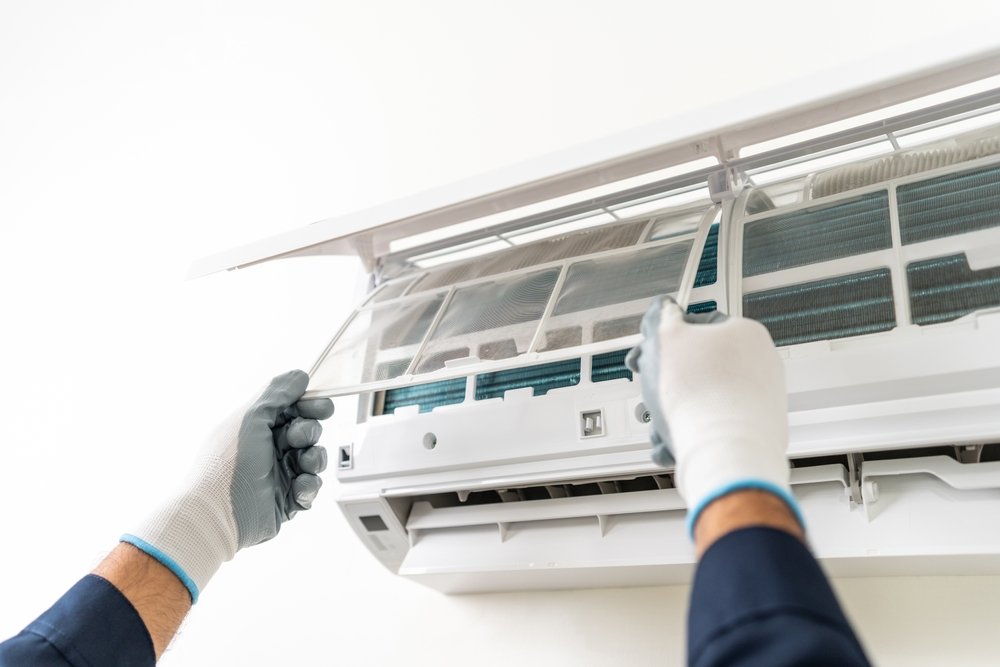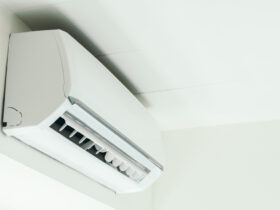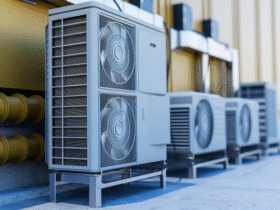If you’ve ever stepped into your home after a long, hot summer day only to be blasted with warm air, you know how crucial a well-functioning air conditioner can be. We often take for granted our cool, comfortable living environments, not realising fully the machinery behind it. But what happens when that cool, silent comrade begins to falter? Would you be able to recognise the red flags? Can you discern between a minor glitch and a major catastrophe-in-waiting?
Home repairs, accomplished with a timely intervention, can save your household budget and avert major inconveniences. This especially rings true when dealing with an essential appliance like the air conditioner. As summer looms, understanding the warning signs that suggest your air conditioner needs repairing is essential.
This comprehensive guide has been designed to elaborate on these warning signs, aiming to maximise your air conditioning efficiency and longevity. We’ll delve into the crucial signs you should never ignore, the potential reasons behind problems, and considerations that could pre-emptively deter an impending air conditioning catastrophe.
Understanding the Normal Operation of Your Air Conditioner
To comprehend when something’s amiss, it’s essential to first understand what ‘normal’ looks like for your air conditioner. For instance, the occasional drip from the AC could be a typical result of its operation, not necessarily a warning sign. Also, being aware of the typical sounds your air conditioner makes during operation or even the standard cooling rate could serve as a valuable reference point, as deviations from these norms could signal a need for repairs.
Naturally, what’s considered ‘normal’ tends to vary based on the specific type and age of your air-conditioning unit. The ‘normal’ for a ductless mini-split system will differ vastly from that of a centralised or window AC unit. Nonetheless, by understanding your appliance’s ‘normal’, you can better discern when something doesn’t quite align, prompting further investigation or professional help.
Telling Signs Your Air Conditioning Needs Repair
Your air conditioner, much like any other home appliance, will typically exhibit signs before it breaks down completely. Has your AC been running for extended durations trying to maintain a comfortable temperature? Or have you been noticing more noise than usual during its operation?
An increase in energy bills may also serve as a potential red flag, reflecting a drop in the unit’s efficiency. Similarly, warm air, frequent cycles, high indoor humidity levels, or bad odours emanating from your air conditioner could all be indications warranting a professional inspection.
The Reasons Behind Common Air Conditioning Problems
The issues causing the warning signs you’re observing could be fairly varied. For instance, a problem as straightforward as a circuit breaker trip could account for the AC not functioning, or there could be more complex issues at play, such as thermostat malfunctions or refrigerant leaks.
Failures in the condenser coils or evaporator could cause warm air blowing out of your AC, while an increase in your energy bills could be due to the unit losing its efficiency. Often, insidious issues that aren’t evident right away, such as insufficient maintenance, could also culminate in severe problems down the line.

Importance of Regular Air Conditioner Maintenance
A well-cared-for air conditioner is less likely to ditch you during a blazing summer. Anything as simple as cleaning or replacing your filters regularly could dramatically boost your unit’s efficiency while also enhancing the quality of air in your home.
Maintaining your air conditioner also paves the way for identifying potential issues earlier, allowing preemptive troubleshooting and stalling severe, costlier repairs down the line. Engaging with a professional maintenance service ensures a thorough inspection, guaranteeing that no latent issue goes unnoticed.
Pros and Cons of DIY Air Conditioning Repairs
While tackling minor issues with your air conditioner might seem manageable and could save you money short term, it’s essential to understand the drawbacks. If you’re not fully knowledgeable about the workings of an AC unit, a DIY repair could lead to further damage.
On the other hand, hiring a professional ensures not just a comprehensive understanding of the problem, but also guarantees its resolution by the most efficient means. While costlier than a DIY repair, the expertise and peace of mind that professionals offer can validate their investment.
Conclusion
Air conditioning has become an essential commodity for most homes, and paying heed to your AC unit’s warning signs can be an effective way of preempting potential troubles. Understanding the nuances of your air conditioner’s standard operation and regular preventive maintenance can prolong its lifespan, optimising your comfort during those hot summer months.
While DIY repairs could seem appealing, recognising when professional intervention is needed is crucial. After all, a healthy AC unit ensures not just a comfortable home, but also contributes positively to our larger mission of energy conservation and sustainability.









Find Us on Socials